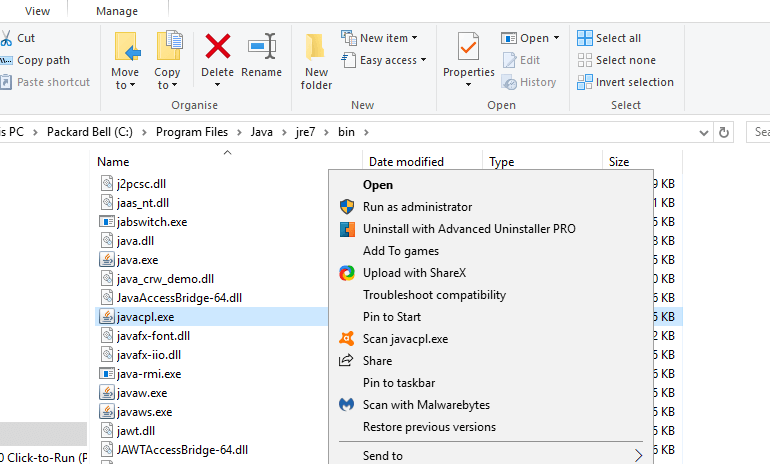

But it doesn't stop there, the MSI file actually unpacks a new exe file, and that's causing problem with the detection method in SCCM. Now, Java is a bit special, as you might have figured out from the exe file unpacking a MSI file. Remember to configure your new application in SCCM to supersede the old version of java, so they will get uninstalled first. Start /wait msiexec.exe /i "jre1.8.0_72.msi" /qn JU=0 JAVAUPDATE=0 AUTOUPDATECHECK=0 RebootYesNo=No Now we can install by adding a few flags to the commandline of the MSI file, like this: Then select the folder for the version you're installing, i.e. jre1.8.0_72:Ĭ:\Users\\AppData\LocalLow\Oracle\Java\jre1.8.0_72 Open the exe file, and just let it stay on the splash screen, then navigate to the following folder where the MSI file are placed:Ĭ:\Users\\AppData\LocalLow\Oracle\Java Remember that you properly need a 32-bit version, since Java 64-bit can only run in a 64-bit browser, and very few have that. Find the newest version of Java offline installer from here. This problem have been reported in some bug reports, here, here and here.įirst, you have to revert to the "old" solution of extracting the MSI package from the Java installer. And just to confuse you even more, it will only fail for the 32-bit version of java, not the 64-bit, even though you use the exact same method.

The problem with that method is that it works when you try to run your script locally with administrator privileges it will work fine, but when you run the same script through SCCM / Configuration Manager, it will fail. In my last post about silent / unattended installation of Java 8 Update 66, we followed the new guidelines for how to install Java 8 silently by Oracle.


 0 kommentar(er)
0 kommentar(er)
